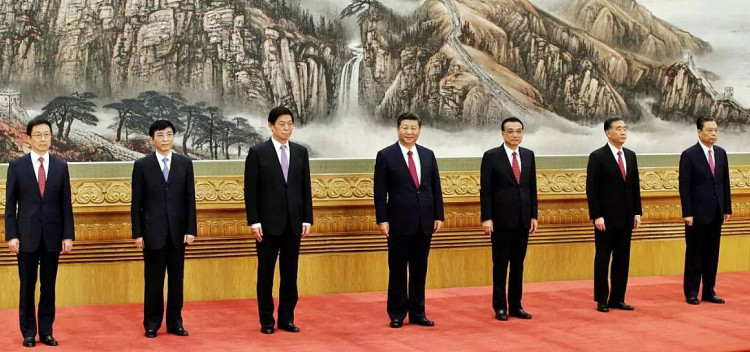China will continue the massive stimulus measures implemented at the start of the year that seem to have helped prevent a more rapid slide in the country's economic growth, announced the Central Politburo of the Communist Party of China, more commonly known as the Politburo.
The 25-man Politburo oversees the Communist Party of China (CPC).
The Politburo on Friday said the new measures will assist the private economy and the development of small- and medium-sized firms, which are the real engines of Chinese economic growth but remain badly underfunded.
It also said the country's financial authorities will try to strike a balance between stabilizing economic growth, promoting reforms, controlling risks and improving people's livelihoods, a difficult juggling act in the face of Trump's trade war against China and the ongoing global economic slowdown.
Nevertheless, China will push forward with its ongoing structural deleveraging and prevent speculation in the property market, according to the Politburo
"We should adhere to the orientation that houses are used for living, not for speculation," said the Politburo in a statement, which also affirmed a city-based approach to control speculation in the volatile property sector.
It made the announcement a few days after China reported a 6.4 percent growth in GDP for the first quarter, defying expectations for another quarterly slowdown. China will also maintain policy support for the economy, which the People's Bank of China (PBOC) said still faces "downward pressure" and difficulties despite the Q1 growth.
"While fully affirming the achievements, we should clearly see that there are still many difficulties and problems in economic operations," said a statement from a Politburo meeting chaired by President Xi Jinping, as quoted by the official Xinhua news agency.
"The external economic environment is generally tightening and the domestic economy is under downward pressure."
PBOC will again implement counter-cyclical adjustments "in a timely and appropriate manner." It also its proactive fiscal policy will become "more forceful and effective." It also said its prudent monetary policy will be neither too tight nor too loose.
Its earlier stimulus in January saw Beijing unleash tax and fee cuts amounting to $298.4 billion (RMB2 trillion) to ease debt burdens on business firms. In a previous but corollary move, PBOC has cut banks' reserve requirement ratios (RRR) five times since early 2018 to spur lending.






